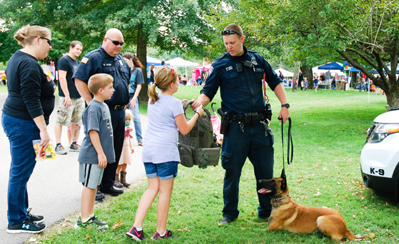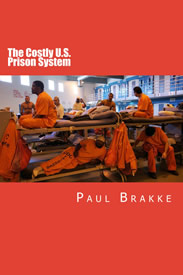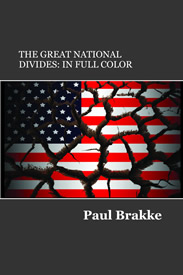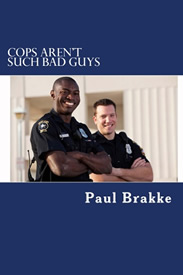The relationships between citizens and the police have become worse than ever. Almost daily, the news features stories about police shooting citizens involved in criminal or suspicious activity, while citizens are fighting back by shooting the police, sometimes in an ambush.
In turn, citizens don’t realize the pressures the police are under in a world where mass shootings happen daily, and teenagers can go from the kid next door that parents and neighbors think they know to another angry mass killer. So citizens are all too ready to blame the police or protest when a police officer is found not guilty, when he should be.
To deal with this crisis in citizen-police relationships, criminal justice expert and commentator on American society Paul Brakke, author and publisher of American Leadership Books, has come up with a program of suggestions and recommendations. He has offered them through a series of white papers, video and PowerPoint presentations, and video shorts, which highlight what is wrong and what to do about it. He has sent these advisory packages to the media, politicians, educators, and academics. He has so far gotten letters of support from President Donald Trump and Senator Tom Cotton, from his home state of Arkansas, praising him for his efforts.
“These conflicts between the police and citizens have become critical and need to be addressed quickly,” Brakke warns. “Otherwise, these events could turn into escalating conflicts between protesters claiming they want justice which has been denied and local law enforcement and government officials trying to control the situation.”
Moreover, as Brakke points out, as these conflicts multiple and escalate, they could threaten the very institutions designed to provide public safety and security. “We are really reaching a point where any crisis, fueled by the social and traditional media, can transform from a local to a national protest in a matter of hours. And at some point, this could be very dangerous given the potential for injury and death for everyone involved.”
In response, Brakke has dedicated himself to creating these programs to overcome the growing problems in citizen-police relationships. “We have to act now,” Brakke emphasizes, “because any local incident could be the spark that sets off a fire consuming homes and communities for many miles. And given the potential of any protest to turn violent, such a scenario is increasingly likely to happen.”
The videos in the series provide a visual introduction to the problem which Brakke presents in a series of Power Point presentations and white papers. Now there are three on improving citizen-police relationships, which are part of a set of 13 videos on how to resolve other key issues, including the divisions in America, the immigration crisis, and the opioid epidemic.
The videos in the citizen-police relations series include the following:
In each video, Brakke discusses the problem and then suggests what to do about it. In making these observations and recommendations to resolve the citizen-police conflict, Brakke has drawn on more than five years of research on the U.S. criminal justice system. He has then written about these issues in nine books which include: Crime in America, Uncertain Justice, and Cops Aren’t Such Bad Guys. He offers a unique conservative approach to crime, criminal justice, and American society, based on applying an economic business model. The goal is to do what works most efficiently to reduce costs and create more productive citizens.
All of the videos for his program are available on the American Leadership Books’ YouTube channel
For copies of the book, more information on American Leadership Books and Paul Brakke, and to set up interviews, please contact:




